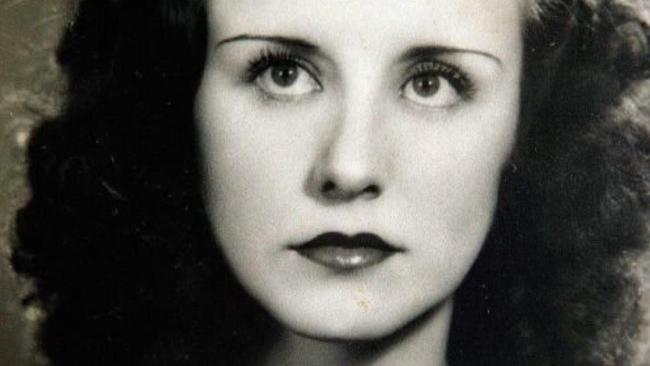Elinor Otto: Original Rosie the Riveter worked to win a war, stayed on to 95
Elinor Otto was one of the first women the US dubbed Rosie the Riveter. She helped win the war, then stayed on until she was 95.

When US president Franklin Roosevelt delivered his Day of Infamy speech following the attacks on Pearl Harbor in Hawaii, America was once again at war. Days later, with Germany declaring war on the US, Roosevelt reciprocated.
The enemies were military superpowers, and the US – like Australia and Britain – engaged all its human and industrial capital to defeat them.
More than 16 million Americans would serve in the armed forces during the next four years. Within weeks the president, perhaps the most influential man of the 20th century, had established the War Production Board. This oversaw the transition of industries as, for example, carmakers adjusted equipment to build tanks, aircraft engines and guns. Shipyards turned to constructing battleships and aircraft carriers.
With most of the fit, younger workers on active service, these industries struggled. Women’s participation in the workforce had not been an issue until then. Now it was a matter of life and death. To the surprise of many west-coast Americans – none of them female – women took on the roles to build America’s fighting capacity.
It was nonetheless a phenomenon, and it was noticed by lyricist Redd Evans (who wrote There! I’ve Said it Again that Bobby Vinton took to Billboard’s No.1 spot in 1964) and composer John Jacob Loeb (whose song Seems Like Old Times was recorded by Sydney’s Sarah Blasko on her hit 2009 album As Day Follows Night). They wrote the song Rosie the Riveter to celebrate these newly liberated women on whom the future of the Western world depended:
“All the day long, whether rain or shine
“She’s a part of the assembly line
“She’s making history, working for victory
“Rosie, the riveter.”
The government picked up on the theme and Rosie the Riveter became a poster campaign and, in 1944, a Hollywood film.
Elinor Otto and her two sisters became Rosies. One worked as a welder, the others worked at the Rohr Aircraft Corporation south of San Francisco (founder Frederick Rohr made the fuel tanks for Charles Lindbergh’s Spirit of St. Louis in which Lindbergh flew non-stop from New York to Paris 15 years earlier).
Otto was a newly single woman with a child when she started riveting at Rohr, still the largest maker of military aircraft in California. She did not know how to use a rivet gun, “but I learned fast”. She wasn’t quite 158cm tall, but colleagues used to warn people to stay out of her way.
“During those days we could hardly find an apartment that would let you rent with kids,” she told a reporter in 2013. “My goodness, they’re going to go to war some day and they can’t even live in an apartment.”
She had her son live with others Monday to Friday during the week. “It cost $20 a week, and it was hard because I made 65c an hour.” So she cleared about $6 a week. Her hourly rate was about $19 in today’s Australian currency. The minimum hourly rate of pay in Australia is $23.23 an hour.
Her male colleagues dismissed the women at first and couldn’t see them doing the job in a timely fashion. “It turned out we worked better than them, faster, because they were so sure of themselves.” The men were forbidden to speak to the Rosies but would leave notes for them in the canteen.
When the war ended, most of the Rosies were let go. Otto worked in an office, which she disliked, then became a carhop – a person who delivered food to people in drive-in restaurants, which started in California in 1948. She didn’t mind the uniform but left when the proprietor insisted she work in rollerskates.
By the early 1950s she was back in a factory, this time the Ryan Aeronautical Company, and later she moved to the Douglas Aircraft Company which, after some mergers, became part of Boeing, where she worked until being laid off in 2014, aged 95. At Boeing she worked building C-17 Globemaster military transport planes, of which Australia has seven. Otto would have worked on them.
She lived for years with her grandson, John Perry, who proudly said Otto had been “saving American lives your whole life”. When he died unexpectedly, she moved in with a great-niece in Las Vegas, where she suffered a stroke last month.
About her own mortality, the endlessly energetic Otto said: “When I go to heaven, I hope God keeps me busy!”
Elinor Otto. Production line worker. Born Los Angeles, October 28, 1919; died Las Vegas, November 12, aged 104.




To join the conversation, please log in. Don't have an account? Register
Join the conversation, you are commenting as Logout